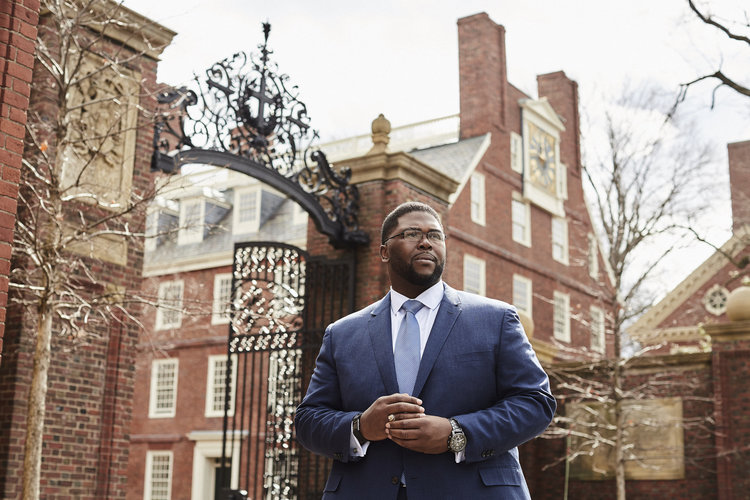How is social class holding some students back?

Harvard University assistant professor, Anthony A. Jack, delivered this year’s keynote address to teachers at the Society’s virtual High School Research Teachers Conference, sharing his insights and research on some factors that hold back lower-income students in college. Anthony is an assistant professor of education at Harvard University, the Shutzer assistant professor at the Radcliffe Institute for Advanced Study, a Junior Fellow at the Harvard University of Fellows and author of The Privileged Poor.
According to Anthony, “higher education is highly unequal and depressingly stratified.” He noted that first- generation college students make up about half of the students at four-year colleges, but only 14% of undergraduates at the most competitive colleges.
Beginning with Princeton University in 1998, colleges began enacting no-loan financial aid policies seeking to combat class inequities, hoping to ensure that money wasn’t a barrier to entry for many students. “An admission letter and generous financial aid do not equal access,” Jack countered. “We seem to have forgotten an old truth that citizenship is so much more than being in a place. It’s also about accessing all the rights and privileges pertaining there too.”
In his research, Anthony investigates how prolonged exposure to inequalities in neighborhoods and schools affect how students navigate college. He explained that one of the significant barriers to advancement for these students is that, “colleges expect them to be comfortable and proactive in forging relationships with faculty from the first day they’ve arrived. This is the road to letters of recommendations, extensions, extra help. This is the road to emotional support when times get rough. Yet, this expectation remains unsaid.”
“Imagine the culture shock then,” Jack added, “that some first-generation college students experience navigating this hidden curriculum.”
Jack noted that many lower-income students find themselves too intimidated to talk to their professors during office hours. Colleges, however, erroneously see students who are comfortable seeking out their professors as engaged, while students without that comfort level are seen as disinterested, Jack explained.
“Undergraduates from Americas forgotten neighborhoods and ignored schools are truly at a disadvantage if we continue to privilege the privileged. But I am not so naïve. Knowing how to navigate social relationships with faculty and deans is not the only hurdle that lower-income students face. There are things that no amount of cultural capital can combat.”
Jack cited food insecurity as a prime structural hurdle that many lower-income students face. “It’s hard to think about complex issues when you’re hungry,” Jacks said.
“As I pushed schools to think about the fact that new students require taking on new responsibilities, I also pushed them to understand that we must move from access to inclusion. We must ensure that social class does not keep lower-income students in secondary positions at first rate institutions.”


